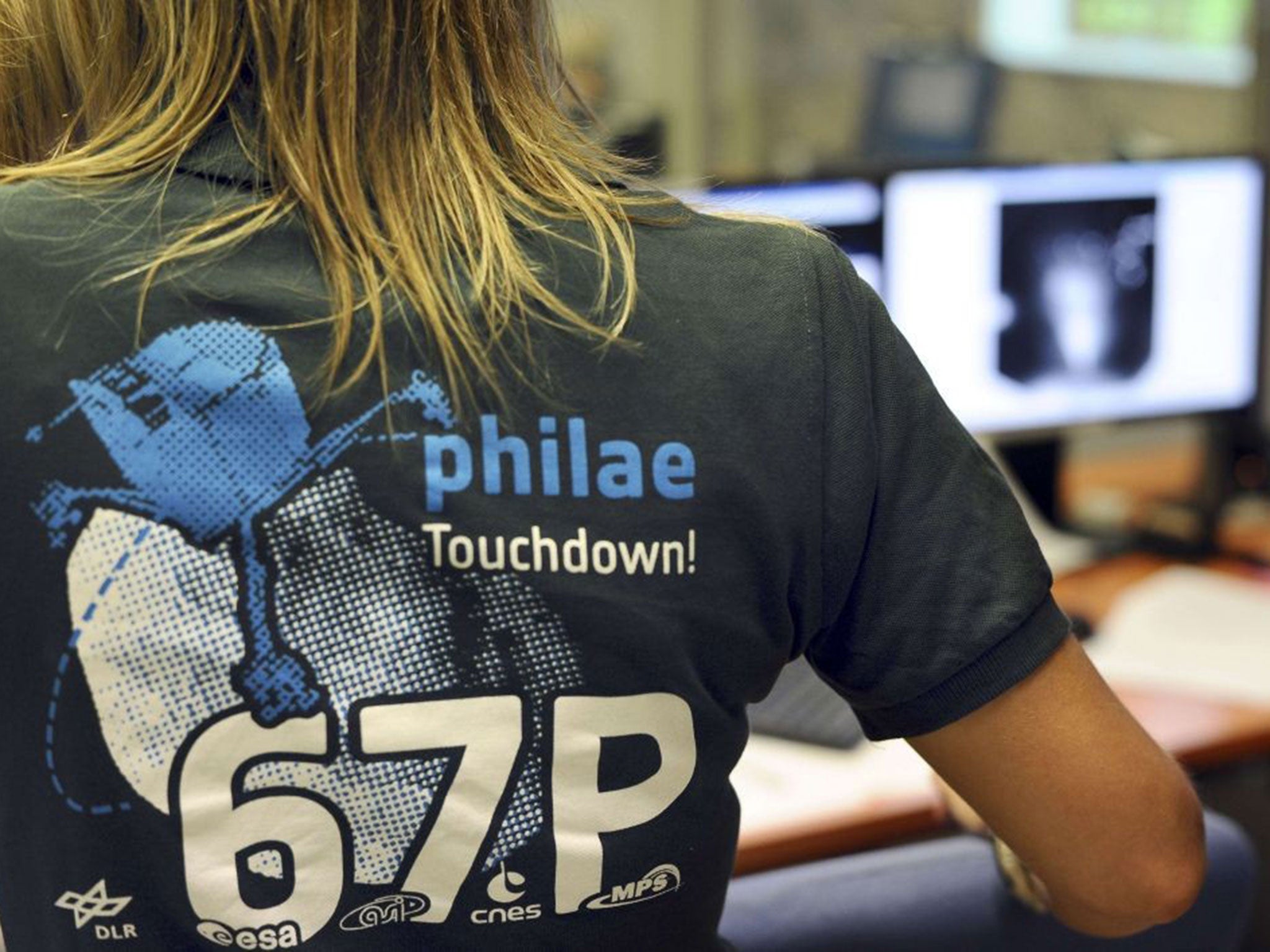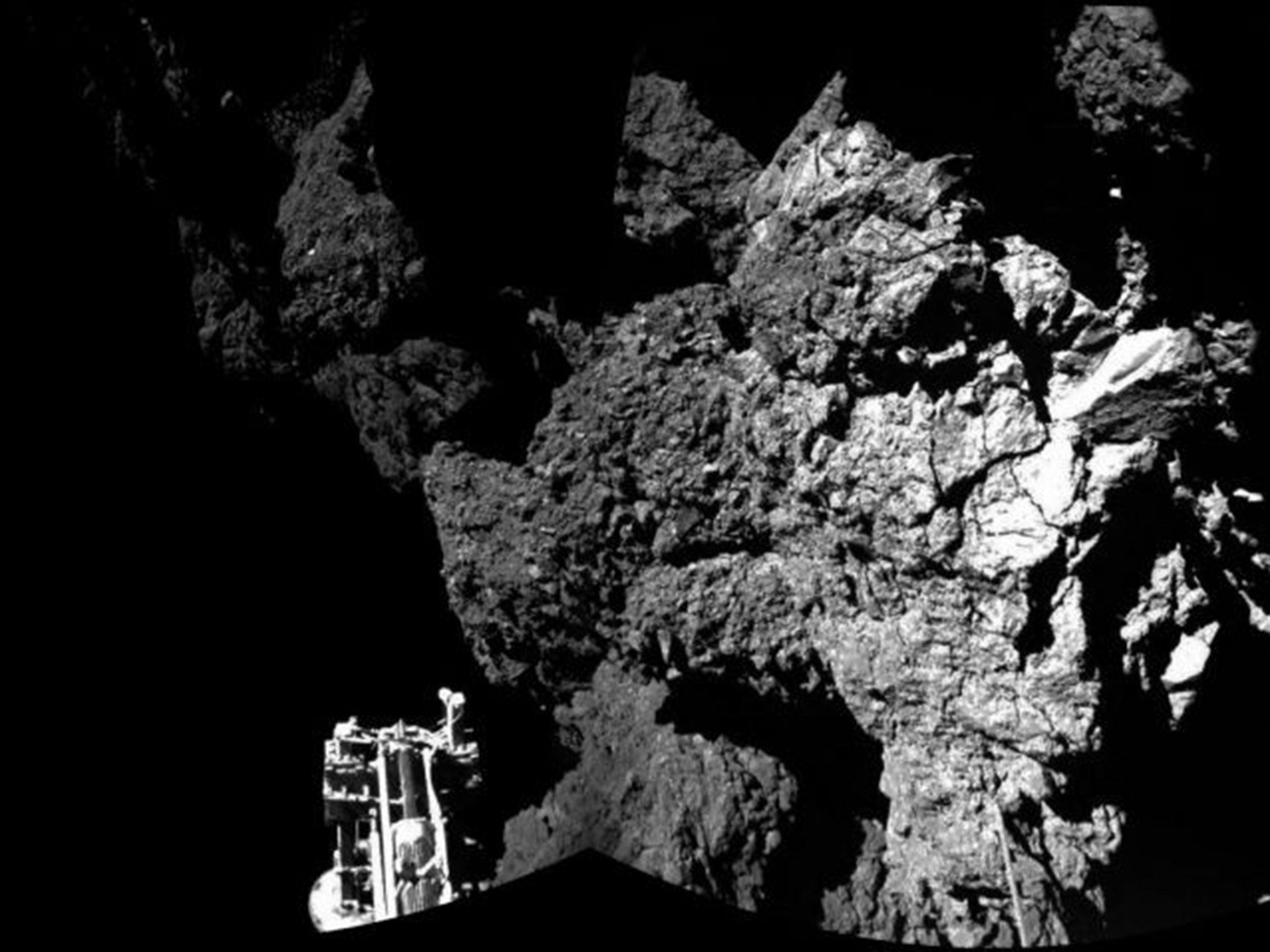Rosetta mission: Philae runs out of steam... but all its data is home
The scientists are happy, and the plucky little lander may reboot yet

Your support helps us to tell the story
From reproductive rights to climate change to Big Tech, The Independent is on the ground when the story is developing. Whether it's investigating the financials of Elon Musk's pro-Trump PAC or producing our latest documentary, 'The A Word', which shines a light on the American women fighting for reproductive rights, we know how important it is to parse out the facts from the messaging.
At such a critical moment in US history, we need reporters on the ground. Your donation allows us to keep sending journalists to speak to both sides of the story.
The Independent is trusted by Americans across the entire political spectrum. And unlike many other quality news outlets, we choose not to lock Americans out of our reporting and analysis with paywalls. We believe quality journalism should be available to everyone, paid for by those who can afford it.
Your support makes all the difference.On the face of it, it looks like an expensive mishap to rank alongside disappointing Mars landers and malfunctioning telescopes, but the Rosetta mission to the distant 67P comet was being celebrated last night as a giant leap forward in space exploration.
On Wednesday, the washing machine-sized Philae robotic probe made a historic landing on the speeding, icy space-rock 500 million kilometres from Earth. But by yesterday morning the last of its battery power had drained, after a difficult landing left it in a dark spot. Before the batteries failed, though, it had transmitted all the data it had gathered, first to its orbiting mothership and on to mission control in Darmstadt, Germany. In doing so, it may unlock the mysteries of comets, which are made from a material older than our solar system.
It was a "rollercoaster" week for mission manager Fred Jansen, but with his team at the European Space Agency (ESA) he can now start analysing a treasure trove of information.On landing last week, the probe's harpoons failed to fire and it bounced twice before coming to rest more than half a mile from its original landing site in a spot where ESA engineers feared it would not be able to recharge its solar batteries.
Despite this, it was yesterday confirmed that the lander successfully returned data from all 10 of its instruments. The machine "performed magnificently under tough conditions", said lander manager Dr Stephan Ulamec. "We can be fully proud of the incredible scientific success Philae has delivered."
What is not known is whether, having rotated its solar panels to receive maximum illumination, the lander will be able to reboot as the comet approaches the Sun. Engineers had been able to push the probe up by about four centimetres, before performing a 35-degree twist.
"The official position is that we don't expect to hear from Philae again," said Christopher Carr, a principal investigator for the Rosetta orbiter. "All the science instruments have done what they needed to do; so essentially it's been a complete success.
"In many respects now the lander mission is done – the orbiter mission is starting," said Mr Carr, a senior research lecturer at Imperial College London. "We may hear from Philae again, we may not, but even if we can't, there's a whole Rosetta mission as we follow the comet closer to the sun and observe it turning into hopefully a really beautiful comet."

Mr Carr said it could be anything from weeks to more than a year before illumination from the Sun is strong enough to potentially recharge the Philae lander. This, he said, would result in limited power and, by this point, the comet's surface will be increasing hostile. "It might get knocked over, theoretically it could even get blown off."
For the orbiter team, the "most exciting" stage of the mission, in the months before August 2015, is approaching. During this time the comet will start boiling off gas. "It's all about observing the evolution of the activity once it becomes like a classical comet," said Mr Carr.
Join our commenting forum
Join thought-provoking conversations, follow other Independent readers and see their replies
Comments